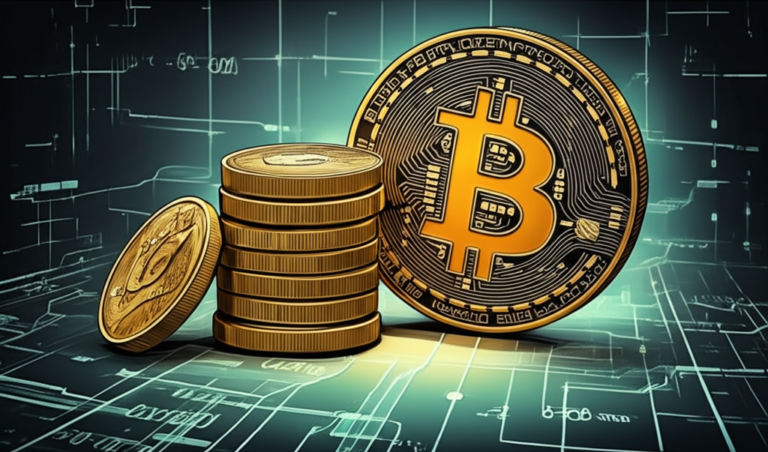
The US Strategic Bitcoin Reserve: National Security in the Digital Age
Could the US government actually buy Bitcoin for its strategic reserves? This question, once considered far-fetched, has become increasingly relevant in today’s pro-crypto political climate. As Bitcoin continues to establish itself as a legitimate asset class, the concept of a Strategic Bitcoin Reserve (SBR) is gaining serious traction among policymakers and financial experts alike.
The Evolution of Strategic Reserves
The United States has a long history of stockpiling resources deemed vital to national interests. The strategic gold reserve helps maintain financial stability and supports the dollar’s value, while the strategic petroleum reserve protects against oil industry disruptions. Now, some forward-thinking officials argue that Bitcoin deserves a place alongside these traditional reserve assets.
The conversation around a US Bitcoin reserve isn’t entirely new. It first emerged early in Bitcoin’s history but gained significant momentum when companies like MicroStrategy began adopting Bitcoin as part of their treasury strategies and countries like El Salvador made Bitcoin legal tender. The discussion reached new heights when Senator Cynthia Lummis introduced the “Boosting Innovation, Technology, and Competitiveness through Optimized Investment Nationwide Act” (BITCOIN Act), which proposes establishing an official Strategic Bitcoin Reserve.
Why Consider a Bitcoin Reserve?
According to proponents, a Strategic Bitcoin Reserve could serve multiple purposes:
- Economic Stability: Bitcoin’s fixed supply of 21 million coins could act as a hedge against inflation, potentially stabilizing the dollar in uncertain economic times.
- Financial Diversification: Adding Bitcoin to government reserves would diversify federal assets beyond traditional holdings like gold and foreign currencies.
- Digital Economy Leadership: Establishing a Bitcoin reserve could position the US at the forefront of the digital economy, ensuring continued financial leadership in an increasingly digital world.
- National Security: Some view Bitcoin accumulation as a national security imperative, similar to maintaining oil reserves for energy security.
Acquisition Strategies: Beyond Market Purchases
Perhaps the most intriguing aspect of a potential US Bitcoin reserve is how the government might acquire these digital assets. Direct market purchases, while straightforward, could be politically controversial and potentially disruptive to Bitcoin markets. Fortunately, several alternative acquisition methods have been proposed that would allow for “budget-neutral” Bitcoin accumulation:
1. Leveraging Seized Assets
The US government already possesses a significant amount of Bitcoin, seized through law enforcement actions against illicit activities. Instead of auctioning these assets off (as has been the practice), a recent executive order (March 6, 2025) directs federal agencies to deposit forfeited Bitcoin directly into the US Treasury. This approach is appealing because it doesn’t require spending taxpayer money.
Current estimates suggest the US government already holds approximately 200,000 BTC from various seizures—a substantial foundation for a strategic reserve.
2. Gold-for-Bitcoin Swaps
One of the more innovative proposals comes from Senator Lummis, who has suggested swapping a portion of the US gold reserves for Bitcoin. The United States holds roughly 8,100 tons of gold, and converting even a small fraction to Bitcoin could establish a significant digital reserve.
Interestingly, due to outdated valuation methods, this could potentially be accomplished without affecting the “book value” of gold on the Treasury’s balance sheet, making it politically more palatable.
3. Accepting Bitcoin for Taxes and Tariffs
The government could begin accepting Bitcoin as payment for certain taxes, fees, or tariffs—particularly customs duties. This approach would create a steady flow of Bitcoin into federal coffers without requiring direct market purchases.
4. Bitcoin-Denominated Debt
Another creative solution would be for the Treasury to issue debt instruments repayable in Bitcoin upon maturity. This would effectively funnel Bitcoin into government hands through market mechanisms.
5. State-Backed Mining Operations
The US could invest in Bitcoin mining operations, particularly in regions with abundant renewable energy resources. Profits from mining activities could offset initial investment costs, minimizing the budgetary impact while steadily building a Bitcoin reserve.
Potential Impact on the US Dollar
The establishment of a Strategic Bitcoin Reserve could significantly impact the US dollar, though experts debate the exact nature of these effects. Some, like Senator Lummis, believe that pairing the dollar with Bitcoin’s inherent scarcity could actually “supercharge” the dollar, strengthening its position as the world’s reserve currency.
According to a study by investment management firm VanEck, accumulating 1 million BTC by 2029 could significantly offset the national debt by 2049—potentially reaching $21 trillion in value, assuming Bitcoin grows to $21 million per coin. While this projection may seem optimistic, it illustrates the potential long-term benefits of a strategic Bitcoin position.
Others worry that embracing Bitcoin could inadvertently undermine dollar hegemony, particularly if other nations follow suit and begin reducing their dollar reserves in favor of digital assets. This raises important questions about the future of global finance and the dollar’s role within it.
Geopolitical Game Theory
Perhaps the most fascinating aspect of a potential US Bitcoin reserve is its geopolitical implications. If the United States were to begin officially accumulating Bitcoin, it could trigger what some analysts call “game theory”—a situation where other nations, fearing they might miss out, accelerate their own Bitcoin acquisition efforts.
This domino effect could lead to a global race to accumulate digital assets, potentially driving up Bitcoin’s value while fundamentally reshaping international financial relationships. Nations with early, substantial Bitcoin positions could gain significant geopolitical leverage in this new paradigm.
The following table illustrates how different countries might respond to a US Strategic Bitcoin Reserve announcement:
| Country | Likely Response | Reasoning |
|---|---|---|
| China | Accelerate digital yuan development while possibly accumulating Bitcoin secretly | Desire to counter US financial influence |
| European Union | Cautious exploration of a Bitcoin reserve while advancing the digital euro | Balance between innovation and stability |
| Russia | Aggressive Bitcoin accumulation | Reduce dependency on US dollar-dominated systems |
| Japan | Formal Bitcoin reserve establishment | Alignment with US financial strategy |
| Developing Nations | Varied responses, with some following El Salvador’s example | Opportunity to reduce dollar dependency |
Challenges and Considerations
Despite its potential benefits, establishing a Strategic Bitcoin Reserve presents several significant challenges:
Security Concerns
Managing large amounts of Bitcoin introduces considerable security challenges. The government would need to implement robust custody solutions, including cold storage, multi-signature authorization, and comprehensive disaster recovery protocols. A security breach could result in the irreversible loss of billions in national assets.
Volatility Management
Bitcoin’s price volatility presents a unique challenge for government reserves, which traditionally prioritize stability. Critics might view significant Bitcoin holdings as gambling with national resources. However, proponents argue that Bitcoin’s volatility has historically trended upward over longer timeframes, suggesting that a long-term holding strategy could mitigate short-term fluctuations.
Market Distortion Risks
Government ownership of a significant portion of the Bitcoin supply could potentially lead to market distortions or politically motivated manipulations. Establishing clear, transparent guidelines for managing these assets would be essential to maintaining market integrity.
Regulatory Framework
A comprehensive regulatory framework would need to be developed to govern the acquisition, management, and potential liquidation of Bitcoin reserves. This would likely require new legislation and coordination across multiple federal agencies, including the Treasury Department, Federal Reserve, and Securities and Exchange Commission.
Current Status: Executive Order 14233
Recent developments suggest this concept is moving beyond theoretical discussions. Executive Order 14233 has directed federal agencies to deposit forfeited Bitcoin directly into the Treasury, explicitly mentioning a “United States Digital Asset Stockpile” and a “Strategic Bitcoin Reserve.”
This order represents a significant step toward formalizing Bitcoin’s role in government reserves, though it primarily focuses on accumulating Bitcoin through existing means rather than direct purchases. The order also mandates further evaluation of legal and investment considerations, indicating that this initiative remains in its early stages.
What This Means for Bitcoin
Should the US government establish a formal Bitcoin reserve, the implications for Bitcoin itself would be profound:
- Institutional Legitimacy: Government involvement would provide unprecedented legitimacy to Bitcoin, potentially accelerating institutional adoption.
- Price Impact: While difficult to quantify precisely, government accumulation would reduce available supply, potentially driving up prices significantly.
- Regulatory Clarity: A government Bitcoin position would likely lead to clearer regulatory frameworks, benefiting the entire cryptocurrency ecosystem.
- Network Security: Increased government interest would likely lead to greater investment in Bitcoin’s underlying security infrastructure.
Future Outlook
As we look ahead, several potential scenarios emerge for a US Strategic Bitcoin Reserve:
Scenario 1: Gradual Implementation The most likely path forward involves a gradual, measured approach to accumulating Bitcoin. Beginning with seized assets and potentially expanding to include tax payments and limited swaps, this approach minimizes political controversy while establishing a substantive reserve position.
Scenario 2: Aggressive Acquisition In response to geopolitical developments or economic necessities, the US could accelerate its Bitcoin acquisition strategy, potentially including significant gold swaps or direct market purchases. This scenario, while less likely, would have profound implications for Bitcoin markets and global finance.
Scenario 3: International Coordination The US could spearhead international efforts to establish coordinated guidelines for national Bitcoin reserves, similar to existing arrangements for gold reserves. This could help prevent a disruptive “digital currency war” while preserving financial stability.
Recommendations for Policymakers
Based on the analysis presented, several recommendations emerge for US policymakers considering a Strategic Bitcoin Reserve:
- Prioritize Seized Bitcoin Allocation: Formalizing the process of allocating seized Bitcoin to a strategic reserve represents the most practical initial step.
- Conduct Feasibility Studies: Comprehensive studies on gold-for-Bitcoin swaps could identify optimal implementation strategies without disrupting markets.
- Develop Robust Security Protocols: Investing in advanced cold storage, multi-signature wallets, and regular security audits would be essential for safeguarding national Bitcoin assets.
- Establish Multi-Agency Oversight: Creating a dedicated committee comprising representatives from relevant federal agencies would ensure proper management and regulatory compliance.
- Promote International Dialogue: Engaging with international partners could help develop coordinated approaches to national digital asset reserves, preventing destabilizing competition.
Conclusion
The concept of a US Strategic Bitcoin Reserve, once considered far-fetched, has evolved into a legitimate policy consideration with potentially far-reaching implications. By leveraging creative acquisition strategies like seized assets, gold swaps, and tax payments, the government could build a substantial Bitcoin position without direct market purchases or significant budgetary impact.
While challenges related to security, volatility, and market distortion certainly exist, the potential benefits—including dollar strengthening, national security enhancement, and digital economy leadership—suggest that this idea deserves serious consideration.
As we move further into the digital age, the question is no longer whether governments will engage with cryptocurrencies, but rather how and when. The United States now has a unique opportunity to shape this future by taking a measured, strategic approach to Bitcoin accumulation.
The next few years will prove critical in determining whether a Strategic Bitcoin Reserve becomes reality and what impact it might have on global finance. For investors, policymakers, and anyone interested in the future of money, this represents one of the most fascinating developments to watch in the evolving cryptocurrency landscape.
What future do you envision for the relationship between governments and digital assets? The conversation has fundamentally changed, and the US government is now a key player to watch in the Bitcoin ecosystem.

